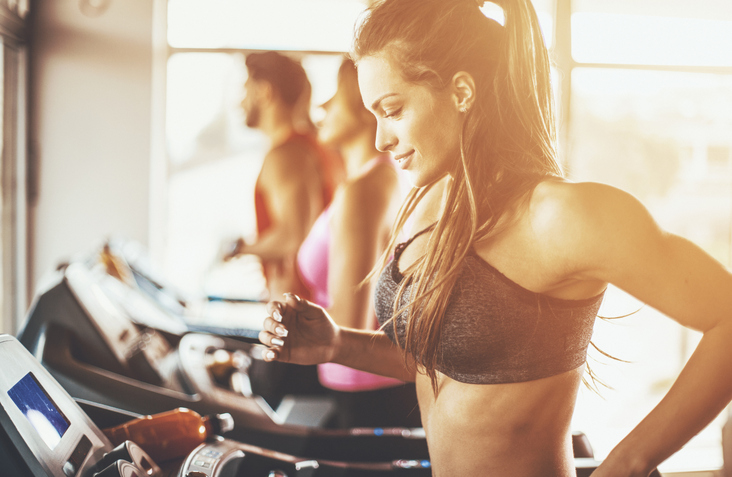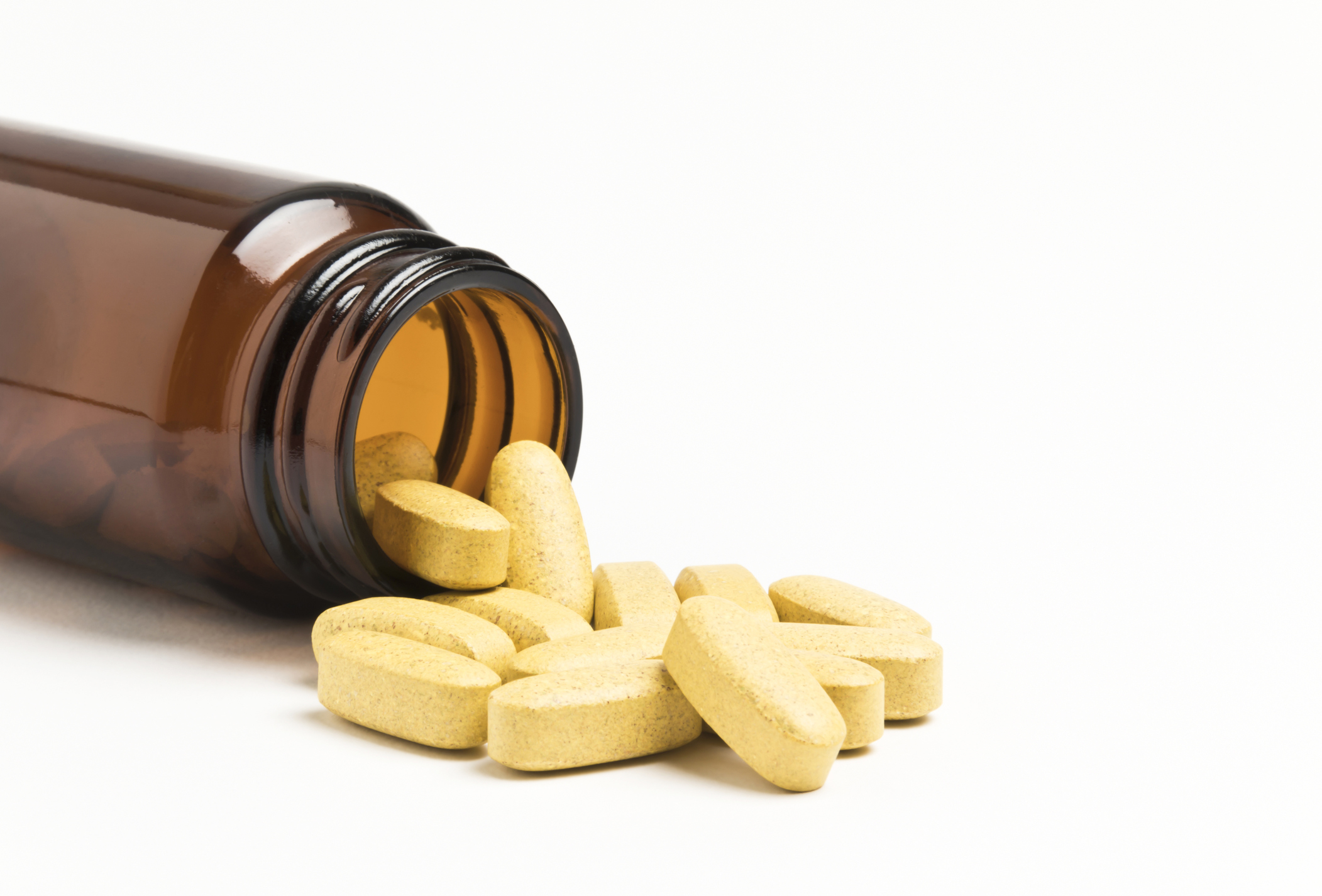5 Ways to Stay Awake and Energized All Day, According to Science
RISE AND SHINE.


Throughout the day, our energy levels fluctuate. We’re jnaturally more productive and feel more awake and alert at certain hours. These times are different for everyone, as your body chemistry is different from anyone else’s.
Perhaps you feel super energized at 11 a.m., but by 3 p.m. you’re crashing and burning and just want to take a nap. Or, maybe you’re someone who’s constantly tired and has no energy…which is even worse. However, lifestyle greatly impacts how much energy we have, and likewise, how sluggish we feel, and there are things you can do to beat that slump before it has a chance to hit.
Since feeling fatigued and lethargic keeps us from performing our best, here are 5 ways to stay awake and energetic all day long, according to science.
1. Do something active

If you’re feeling sluggish, one of the best things you can do to revive yourself is to scrape yourself off your chair and do something active. Take a brisk 10-minute walk, do some jumping jacks in place, or run up and down a few flights of stairs.
In other words, do anything that’ll get your blood flowing, because increased blood flow means you’ll have more oxygen pumping through your veins and therefore your brain, which is absolutely crucial for feeling awake and energized.
However, if you’re thinking you can get the same energy boost from a candy bar, I have news for you: It won’t. A study from Dr. Robert Thayer at California State University, Long Beach, found that people who took a brisk 10-minute walk felt a significant increase in energy levels for two hours, whereas those who opted for a candy bar had a brief energy boost, but actually felt more tired and even more sluggish an hour later.
Long story short, put that Snickers down and get active, ya weirdo.
2. Drink more water

Even though we all know how important water is, the majority of us sure as hell don’t drink enough of it, which makes you feel weak, tired, and a plethora of other unsavory symptoms.
When you’re dehydrated, your body can’t pump blood or absorb vitamins and minerals properly, your digestive system gets wonky (a.k.a. you get backed up), kidney function decreases, among other things, which leads to fatigue, irritability, cramps…you name it. Water is literal magic for the body.
That said, drink more water! Surely you’ve heard that eight glasses, or two liters, of water per day is the recommended amount, but that’s not enough for many of us, especially for those who weigh a bit more than average.
The National Academies of Sciences, Engineering, and Medicine determined that an adequate daily fluid intake is:
About 15.5 cups (3.7 liters) of fluids for men
About 11.5 cups (2.7 liters) of fluids a day for womenThese recommendations cover fluids from water, other beverages food. About 20 percent of daily fluid intake usually comes from food and the rest from drinks.
3. Improve sleep quality

Going to bed early and sleeping for 8 hours won’t do you any favors if your quality of sleep is shitty. If you’re constantly waking up and tossing and turning, you won’t be able to reach the deeper, most restorative stages of sleep.
According to Dr. Philip Gehrman, an assistant professor of psychiatry at the University of Pennsylvania, stage three of sleep is the deepest and most restorative sleep there is, and is the one that makes us feel well-rested and energetic the next day. We spend around 20 percent of the night in stage three sleep, which means it’s super valuable.
However, if most of the night is spent drifting in and out of sleep and waking up multiple times, you’re not going to reach that restful stage.
With that said, try some of these suggestions to help you sleep better, and you’ll feel exponentially more energized throughout the day.
Speaking of sleeping, if you’re someone who has trouble falling asleep, try this secret military technique that knocks you out in two minutes flat, as outlined by Joe.co.uk:
One: Relax the muscles in your face, including your tongue, jaw, and the muscles around your eyes.
Two: Drop your shoulders as low as they’ll go. Then relax your upper and lower arm on one side, and then the other.
Three: Breathe out, and relax your chest.
Four: Finally, relax your legs, first thighs and then calves.
So what comes next? Well, after ten seconds more of trying to clear your mind, Lloyd Bud Winter (the book’s author) suggests that you picture one of the following three mental images:
Lying in a canoe on a calm lake, nothing but blue sky above you.
Snuggled in a black velvet hammock in a pitch-black room.
Saying “don’t think, don’t think, don’t think” over and over for ten seconds.
4. Try energy-boosting supplements

There are certain vitamins and supplements you can take that’ll do wonders for your energy levels and can help you avoid that dreaded “I need a nap NOW” feeling you sometimes get at inopportune moments.
For starters, B vitamins are crucial for boosting and regulating energy, and specifically, having a vitamin B-12 deficiency has been proven to cause fatigue. “Fatigue is one of the first signs of vitamin B12 deficiency,” dietitian and spokesperson for the Academy of Nutrition and Dietetics, Lisa Cimperman, told Prevention.
“That’s because your body relies on the vitamin to make red blood cells, which carry oxygen to your organs. And without enough oxygen in your cells, you’ll feel tired no matter how long you sleep.”
Furthermore, adaptogenic herbs are great for keeping yourself energized. “These healing plants balance and restore the body’s natural ability to handle stress by regulating the adrenal system, which is responsible for controlling the way hormones respond to stress. Adaptogens don’t target a specific body part; instead, they help your entire body gently cope with stress, anxiety and, of course, fatigue,” says Dr. Josh Axe, a doctor of natural medicine, chiropractor, and clinical nutritionist.
“Some of the best adaptogen herbs that have been shown to boost energy and combat low energy in females and males alike include: ashwagandha, rhodiola, holy basil and ginseng.”
5. Eat better

As I said before, eating a candy bar that’s full of refined sugar and carbs is not going to help you out when you’re feeling exhausted, and neither is a cheeseburger, slice of pizza, or any other food item high in refined carbs. These foods have very little nutritional value and make your blood sugar spike, and the comedown only leaves you feeling worse off than before.
To boost productivity and energy, Dr. Axe specifically recommends eating beets due to “their concentrated content of nitrates, which are naturally-occurring compounds that act as vasodilators to increase blood flow.”
A study published in Nitric Oxide revealed that a diet rich in nitrates “was able to increase blood flow to certain regions of the brain that are responsible for attention and self-regulation.” Nice!
Other energy-boosting foods are salmon, broccoli, green tea, dark chocolate, almonds, eggs, and sweet potatoes.
See? Staying energized and awake isn’t rocket science. Give these suggestions a try and see how you feel.
Good luck!
